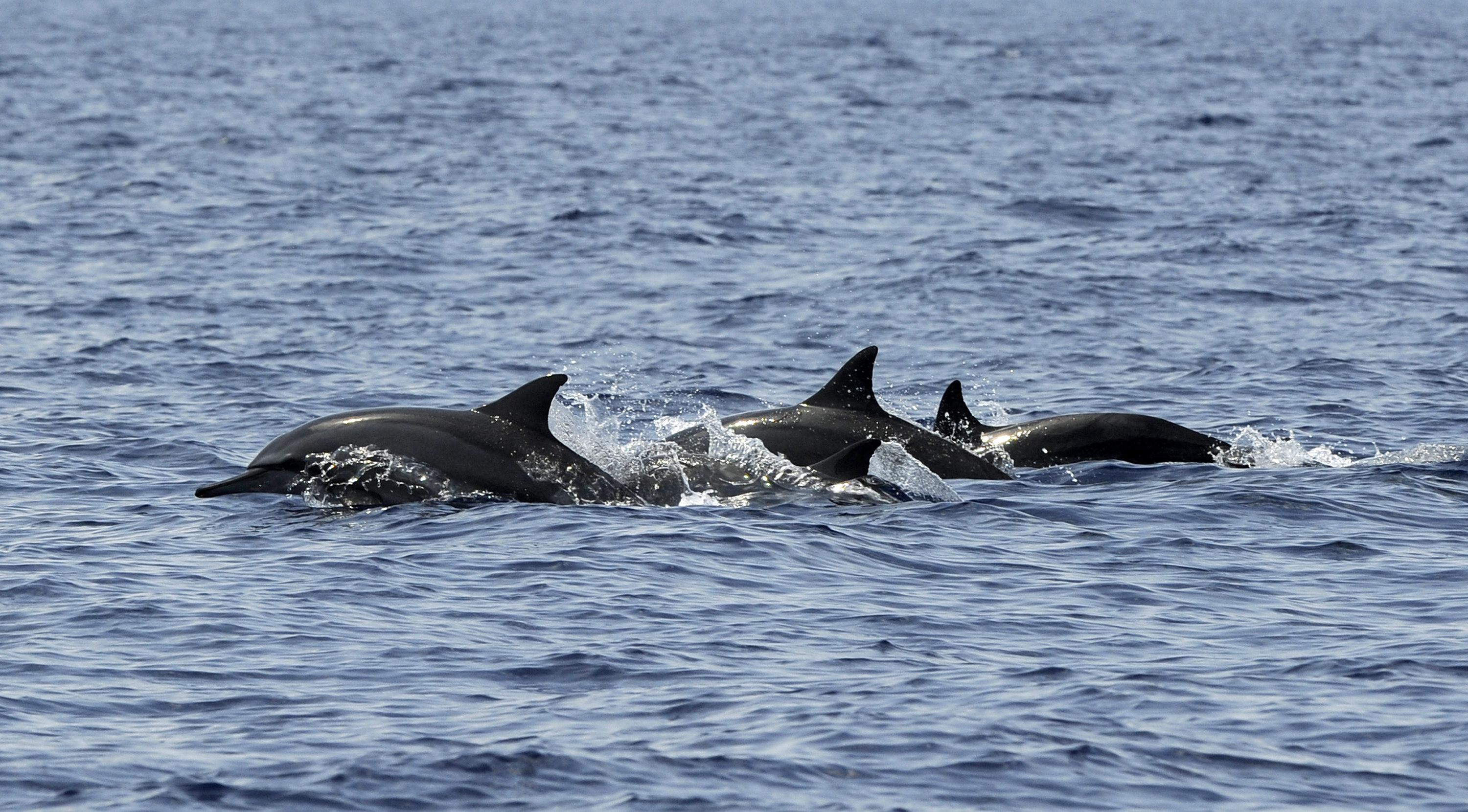Last Month, the Huffington Post and other outlets reported that dolphins protected long-distance swimmer Adam Walker from a nearby great white shark. This tale is the latest in a long line of similar claims that dolphins save humans. The ancient Greeks told stories of dolphins protecting sailors, and it even happened on an episode of Flipper. It isn’t surprising that people are fascinated by this idea. Unfortunately, there just isn’t any reliable evidence that it’s true. In fact, this story is a rare combination of three different myths about marine life.
Myth No. 1: Sharks are extremely dangerous, and if one is around, you’re probably going to be bitten. Simply being around a shark does not mean that the shark is about to bite. In fact, hundreds of millions of people swim in the oceans every year, and many people are close to sharks without any kind of incident. Most of these people probably aren’t even aware that a shark was nearby. In an average year, fewer than 100 people in the world are bitten by sharks—more people are bitten by other people in New York City every year. More people are killed each year by cows or vending machines than by sharks.* The kind of fear-mongering media coverage that has perpetuated the “sharks as dangerous killing machines” stereotype has a direct harmful impact on the conservation of sharks, many of which are Threatened with extinction.
Myth No. 2: Humans share a special, spiritual, magical bond with dolphins. Dolphins are smart, we’re smart, and therefore we must have a bond with them, right? To some extent, maybe, but the whackadoodle fringe has taken this way too far. You can buy magic crystals that let you “join the dolphin consciousness” that “vibrate at a high dimensional frequency,” or even have a dolphin-assisted birth. Dolphins are intelligent, ecologically important predators, and some species are in need of conservation assistance, but magical creatures they are not.
Myth No. 3: Sharks and dolphins avoid one another and are very rarely in the same place at the same time. This myth is often associated with a shark safety tip: “If you see dolphins, it’s safe to swim there because their presence scares away sharks.” This is simply not correct. In fact, sharks and dolphins are often found near each other for a simple reason—they eat the same food, and both go where the food is.
Is it possible that dolphins would protect a human from a shark? Sure, it’s not completely outside of the realm of possibility. Dolphins fight sharks sometimes. Dolphins have sometimes been known to occasionally engage in “reciprocal altruism,” helping members of other cetacean species. However, dolphins also torture members of other species to death for fun, and in at least one case all the dolphins left the area as soon as a large shark arrived.
What would constitute reliable evidence of a dolphin protecting a human from a shark?
While I’m skeptical that this behavior happens, I would be persuadable if reliable evidence existed. By “reliable evidence,” I mean:
1. A shark was unquestionably engaged in aggressive, likely pre-bite behavior toward a human. Simply being nearby does not count, as sharks are often near humans without incident.
2. Dolphins unquestionably altered their own behavior in response to the shark’s aggressive behavior. Simply being nearby does not count, as dolphins and sharks are often near each other without incident.
3. The shark unquestionably switched from aggressive, likely pre-bite behavior towards a human to either typical behavior or swimming away from the area as a response to the dolphin’s altered behavior
4. There is evidence of the entire behavior exchange that can be independently verified by experts who were not there. A detailed video recording would be ideal.
It may be unlikely that we’d be able to get all of this evidence, but “it’s hard to prove” doesn’t mean “it happens.” Extraordinary claims require extraordinary evidence.
So what really happened to Adam Walker last month in New Zealand?
Let’s review the evidence. Adam Walker saw a shark, and he saw dolphins, and he was not bitten by a shark. In other words, he went swimming in the ocean and had a pretty typical experience. Maybe the dolphins were there to protect a human, or maybe a much simpler and more likely scenario occurred: Dolphins and sharks were there because he was in the ocean and dolphins and sharks live in the ocean. Other than his attempt to raise money for an ocean conservation charity through his long-distance swimming, this story simply wasn’t newsworthy.
*Correction, May 8, 2014: This post originally stated that more people are killed each year by coconuts than by sharks. This, too, is a myth.
